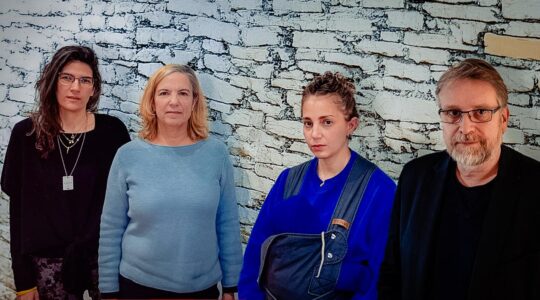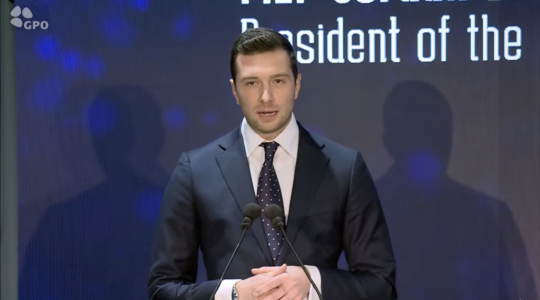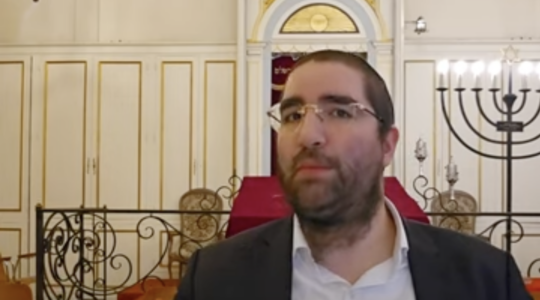AMSTERDAM (JTA) — The Dutch tax authority is seeking payment from an 86-year-old Holocaust survivor for a pension stipend that she is receiving from Germany for her employment as a child in forced labor.
The Tax and Customs Administration demanded this summer that Inge Prenzlau pay a portion of her $156 monthly compensation stipend from Germany even though that country exempts other recipients residing in Germany and beyond from paying taxes on that class of payments, Het Financieele Dagblad, one of the Netherlands’ leading publications on the world of finance, reported last week.
In 1942, Prenzlau worked at her father’s factory without pay when she was 11 years old after her father fell ill. The family was forced to send her to work to prevent the German occupation forces and local collaborators from taking over the factory. She had to walk two hours to and from the factory because Jews were not allowed to use public transportation.
Prenzlau took the Dutch tax authority to court, seeking an injunction against its motion to collect. The court instructed the government to sort out the dispute.
Menno Snel, a politician for the liberal D66 party and state secretary for finance, is opposed to making an exception for Prenzlau, Het Financieele Dagblad reported. In a letter he sent last year to the tax authority, he warned against making a concession that would set a precedent for “many other stipends rooted in such things as war, for example, disaster, terrorism, hijacking and abuse.”
But Prenzlau finds this attitude “impossible to understand, so obtuse,” she told the newspaper.
“In the war we were abandoned. So the government can stop being so childish, especially since we’re not talking about large amounts of money here,” she said.
Prenzlau’s case has angered some of the country’s best-known intellectuals.
Leon de Winter, a celebrated Jewish novelist, suggested it undermined the message of unity and altruism in a recent statement by Dutch King Willem-Alexander. In a filmed Christmas address, he said, “Instead of a broader ‘me,’ let us seek a larger ‘we.’”
While the king “gets a tax-free royal salary,” de Winter, the son of Holocaust survivors, wrote on Twitter, “this 86-year-old woman needs to pay taxes for her so-called ghetto commendation.”
JTA has documented Jewish history in real-time for over a century. Keep our journalism strong by joining us in supporting independent, award-winning reporting.





